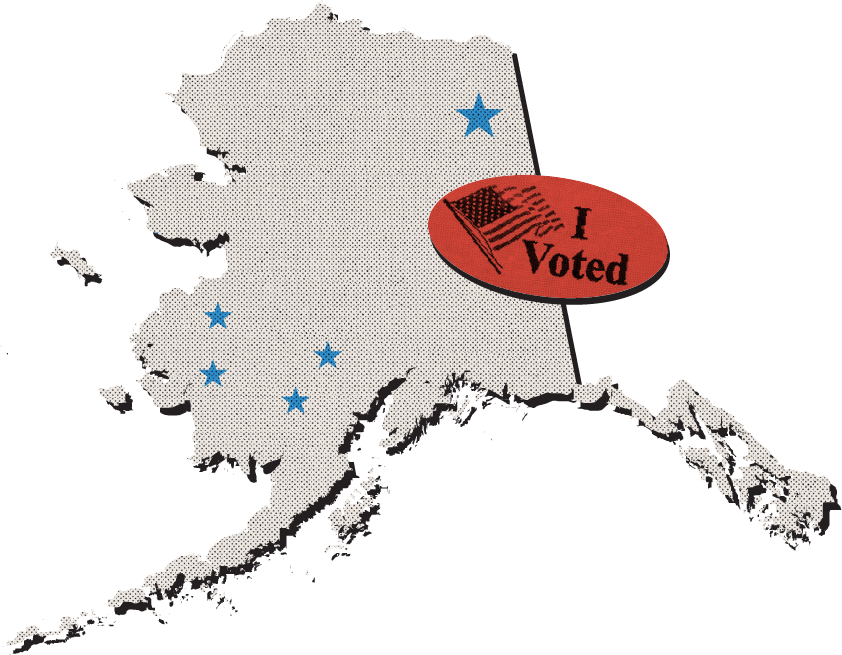
Senator Lisa Murkowski of Alaska recently said the quiet part out loud: “We are all afraid.” Speaking at a conference in Anchorage, she admitted what most of her colleagues won’t — that many elected officials live in fear of being “primaried.” In other words, most elected officials don’t fear losing to the other party in a general election. They fear losing to someone more extreme in a low-turnout, party primary.
Sen. Murkowski is one of the few elected officials from either party who is insulated from that threat. Thanks to Alaska’s election system — one that gives more voters a voice — she doesn’t face the same threat. And that means more Alaskans cast meaningful votes: votes that actually help decide who represents them.
Murkowski’s story shows what’s possible when elections are designed to serve voters — not just parties.
Alaska’s move to open, all-candidate primaries
In 2020, Alaskans adopted a new system that replaced party primaries with an open, all-candidate primary. In this system, all voters — regardless of party — can vote for any candidate on the same ballot. The top four finishers advance to the general election, which is then decided by an instant runoff. Unite America was a proud supporter of this reform.
Alaska’s open primary system gives every voter a voice, freeing candidates like Sen. Murkowski to appeal to the whole electorate — not just their party base. It’s no accident that she has been one of the few elected Republicans willing to differ with President Trump.
Alaska's open primary system not only removes the threat of Sen. Murkowski being “primaried” by a more extreme Republican candidate in a low-turnout Republican primary – it also ensures that more votes are meaningful toward the final result.
A meaningful vote is one that helps decide the outcome of a competitive election. According to our recent report, states like Alaska — which use open, all-candidate primaries — have twice the share of meaningful votes, on average. That’s because their general elections are more competitive, and since general elections draw higher turnout, more voters end up casting votes that truly count.
So thanks to its election system, Alaska had the second highest share of meaningful votes in the nation in 2024. When Alaska first implemented its reform, the state’s share of meaningful votes increased from 22% in 2020 to 35% in 2022 – a 58% increase in the share of meaningful votes. This isn’t just good for legislators and governing. It’s good for voters. It means more of them have a real say in who represents them — not just the loudest voices in a low-turnout primary.
Why other senators earn so few meaningful votes
Sen. Murkowski earns more meaningful votes than the vast majority of her colleagues in states with party primaries. In 2022, 49% of Alaskans cast meaningful votes to elect her. Because the general election was competitive, every vote cast in it was meaningful.
Consider senators like Republican Joni Ernst (Iowa) and Democrat Cory Booker (New Jersey), who represent “safe” states where only a small fraction of voters help decide their fate.
In Iowa’s last U.S. Senate election in 2022, just 8% of eligible voters cast ballots in the GOP primary — the only election that matters in the safe red state. That means more than 9 in 10 voters, because they were not registered as Republicans and/or didn’t vote in the Republican primary, were effectively shut out from casting meaningful votes.
In solidly blue New Jersey, it’s a similar story. In 2020, just 16% of eligible voters cast a meaningful vote to reelect Sen. Booker in the Democratic primary. He faced only one challenger in that primary and won by a wide margin. The general election? Unsurprisingly uncompetitive — he won by over 16 points.
Both represent “safe” states, so the real risk isn’t losing to the other party — it’s being unseated in a low-turnout party primary. In a state like Iowa, where just 8% of eligible voters cast ballots in the last GOP primary, even a small shift — 4–5% — can tip the outcome. That gives party insiders like Donald Trump or even Elon Musk the power to make or break candidates like Sen. Ernst. On the Democratic side, the threat is more likely to come from outside the establishment — progressive activists, Justice Democrats, or figures like AOC — who could mount a serious primary challenge to someone like Sen. Booker if they coalesce behind a well-funded candidate in a low-turnout race.
Open primaries mean real representation
Unlike in Alaska — where all voters help decide who advances to the general election — states like Iowa and New Jersey still rely on party primaries that limit participation to the most engaged and partisan voters. That means elected officials aren’t incentivized to represent the broader public — they’re focused on avoiding a primary challenge. The goal becomes survival, not service.
It’s no wonder these senators tread carefully. It’s not that they lack conviction — it’s that their states’ election systems punish independence from the party line. And that’s a problem that open primaries like Alaska’s system can fix.
By giving all voters a say — and ensuring their votes are truly meaningful — reforms like Alaska’s help shift incentives away from partisan pandering and toward real representation.
Sen. Murkowski can be who she is because voters in Alaska are allowed to express who they are. Sen. Murkowski is liberated to serve all Alaskans – not just a small sliver of voters. In Alaska, more votes matter. More voices are heard. That’s what meaningful votes are all about.

Stay up-to-date on the latest news and resources from Unite America.